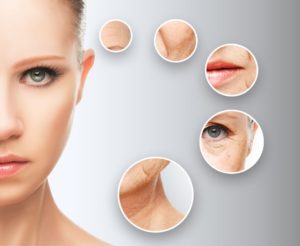What are cheek fillers?
Cheek fillers are injectable dermal fillers used to give the face a more voluminous, full, and youthful appearance. They are commonly made of hyaluronic acid, a naturally occurring substance in the body that helps retain moisture and adds plumpness to the skin depending on the desired effect though and individual patient needs, other materials such as calcium hydroxylapatite or poly-L-lactic acid may also be used. Cheek fillers can be used to achieve a youthful and lifted appearance, to address sunken or hollow cheeks due to aging or weight loss, and to enhance facial symmetry. Benefits of cheek fillers include enhanced cheekbones and facial contours, diminished wrinkles and crow’s feet, as well as a softer overall look.
How long do fillers in cheeks last?

Fillers in cheeks can last anywhere from 6 to 18 months. Results of the filler treatment depend on many factors like the type of filler used, the amount injected, and the area it is being injected into. Hyaluronic acid fillers tend to be shorter lasting than other types because they are naturally broken down by the body over time. The longevity of a filler also depends on where it is being injected; some areas may have longer-lasting results than others. Since fillers are temporary, patients often need to return for additional treatments to maintain their desired results. It is important to discuss with a board-certified plastic surgeon prior to getting a facial filler so that you understand how long your specific results may last.
What happens when cheek fillers wear off?
When cheek fillers wear off, the skin and area of the face that was treated will return to its original shape. The duration of a filler depends on the product used, but typically lasts for up to nine months. Over time, as the body naturally metabolizes the filler, it becomes soft again and then completely fades away. Once it wears off, you may not notice immediate results; however, if a second treatment wasn’t performed in time then any volume lost due to aging or gravity will once again be visible. If you had multiple treatments to increase facial volume and define features such as cheekbones and lips, those effects may diminish with time as well. Therefore, getting follow-up treatments at regular intervals is essential for maintaining desired results.
Can Men Get Cheek Fillers?
Yes, men can get cheek fillers. Cheek fillers are an increasingly popular non-surgical treatment that is used to improve the appearance of the face, as well as reduce wrinkles and sagging skin. For men, it can be used to restore facial volume and structure, and help create a more masculine look. Additionally, it can give volume to sunken cheeks that have been caused by ageing or weight loss. Commonly used fillers for the cheeks include hyaluronic acid based products such as Juvederm or Restylane, which provide subtle results with minimal risk. When administered by a professional aesthetic practitioner, cheek fillers are generally safe and have minimal side effects, such as bruising or swelling. Ultimately, cheek fillers can help men bring balance to their facial features and achieve a healthier, more youthful aesthetic.
Do Cheek Injections Require Any Downtime?
Cheek injections require minimal downtime, usually just a few days. Most people who have had cheek injections report little more than some minor discomfort following the procedure, and any redness and swelling that may occur generally only lasts for a few days. In most cases, normal activities can be resumed as soon as you feel comfortable doing so. That said, it is important to follow your doctor’s instructions carefully to ensure optimum results and reduce the risk of complications. Be sure to take note of any recommendations they provide regarding resting and avoiding strenuous activity or exposure to too much heat. Additionally, you may need to avoid certain medications or supplements in order to ensure success with the injection process.
*Information in this article is not medical advice and may not be factually accurate. It is intended for entertainment purposes only. Consult with a physician before attempting any tips in this blog post and to get the most up to date factual data about any procedure or treatment.














